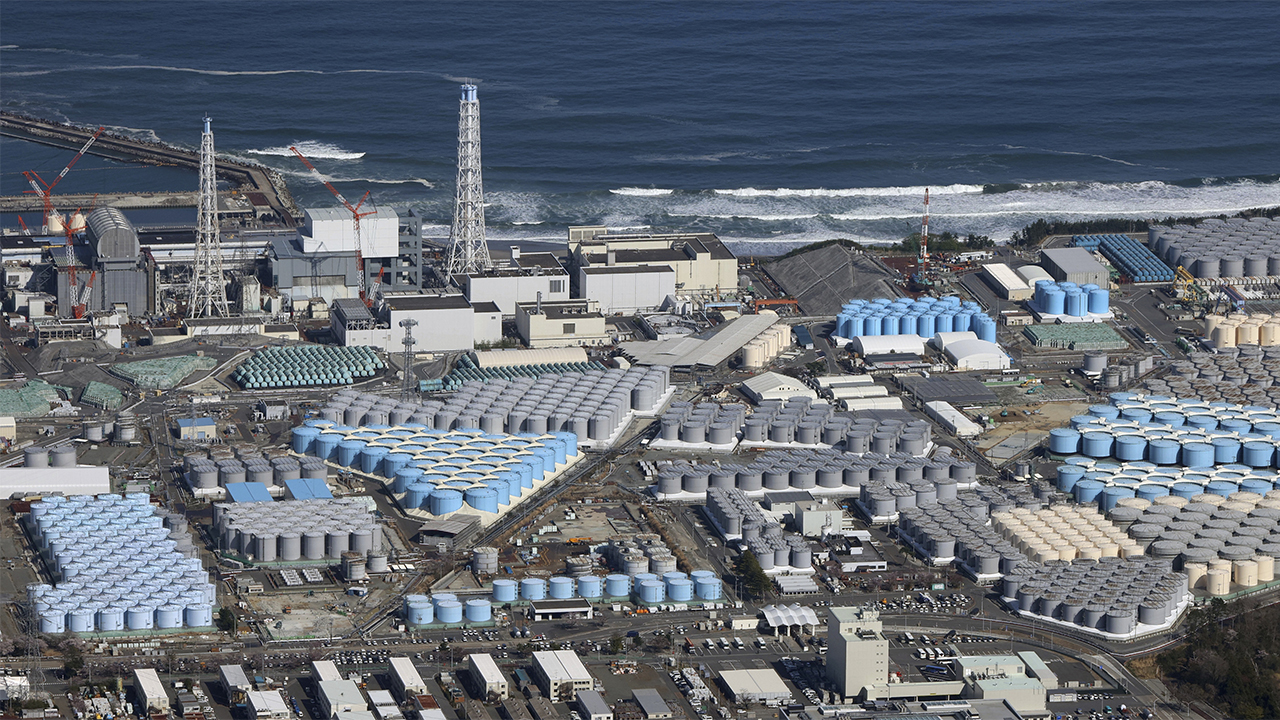Unity Fiji party leader Savenaca Narube believes that Prime Minister Sitiveni Rabuka “has jumped the gun” in showing his support to the Japanese Government’s plans to dump the Fukushima nuclear wastewater into the Pacific Ocean.
He said he would have preferred a collective opinion from all Pacific Island Forum (PIF) members on the issue.
“The release of radioactive waste from the Fukushima nuclear plant into the Pacific Ocean is a serious issue for the small Pacific Islands that rely so much on the ocean for their survival let alone livelihoods,” Narube said.
“I think that the Fiji Prime Minister has jumped the gun. I would have preferred the Pacific Islands Forum to discuss this issue and take a collective stance. We are all in the same ocean.
“This single country response favours Japan which could use its other leverage in the region to get a favourable response from individual countries.”
He said if the wastewater was safe, the Japanese Government would have used it in Japan for other purposes.
“The risks are high. The wastewater is not 100 percent safe, otherwise they would have used it for some useful purposes in Japan.
“There is a danger that the scientists are wrong. Our people may suffer from this action many years down the line when the PM Rabuka and other Island leaders would not be around to account for their decision.”
“This issue needed a conservative strategy.”
Narube said the leaders of the Pacific should have listened to all alternatives before making a collective stance on the matter.
Meanwhile, Civil society organisations (CSOs) have voiced their concerns and disapproval on Prime Minister Sitiveni Rabuka’s support of the Japanese Government’s intention of dumping the Fukushima nuclear wastewater into the Pacific Ocean.
Fiji Council of Social Services (FCOSS) executive director Vani Catanasiga said the PM’s decision could have been somewhat influenced by the level of debt Fiji owed to the Japanese Government and the Japan International Cooperation Agency (JICA).
Rabuka had issued a statement and said he was satisfied that the International Atomic Energy Agency (IAEA) report was “reassuring enough to dispel any fears of any untoward degradation of the ocean environment that would adversely affect lives and ecosystems”.
“It’s a pity that our PM has compromised on that position,” Catanasiga said.
“You look at our economy and you look at who we owe our debt to, who we owe money to in terms of our debt level. Look at our debt composition and then you can figure out something. We owe some money to JICA, we owe money to the European Investment Bank, you do the math.”
She said the fight was more than just about the physical dumping of wastewater but rather on the paradigm that the “global North” has that the Pacific could be used as a dumping ground.
“We fought very hard and it’s not just about the testing, it’s about the idea that can be done to the Pacific people, to the Pacific nations.
“It would be good to have leaders who understand that we are fighting a paradigm that sees Pacific islanders as much less deserving of a dignity. We are not a dumping ground and that needs to be communicated from the highest office.
“The ocean is precious to us as Pacific islanders, as Fijians, we depend on it. We protect it, we are stewards. If he understands the concept of stewardship, he wouldn’t have said statements like that.”
Pacific Network on Globalisation (PANG) Nuclear Justice Campaigner Epeli Lesuma echoed the same sentiments shared by Catanasiga and said the statement made by PM Rabuka “paints Fiji in a bad light”.
“I think we must also remember that Fiji is a founding member of the Treaty of Rarotonga, which is a nuclear treaty for the region, and so as a leader in the region, as a leader against nuclear testing and nuclear waste, that statement by the PM was disappointing because it paints Fiji in a bad light.
“The PM mentioned that he had read the IAEA report, but I think it’s also no secret as well that the Japanese Government has aggressively pursued bilateral engagement with Pacific Island countries as well as through the use of Overseas Development Assistance (ODA) to soften and to fracture regional solidarity against Fukushima.
“So, it’s come as a bit of concern for those of us in the civil society sector to have also observed Japan’s bilateral engagements with Fiji and the Coalition Government.
“Visits by high level ministers of Japan and engagements by the Japanese embassy, which in our view, would have in some way, shaped the view and the statement of the PM last week,” he said.
SOURCE: FIJI TIMES/PACNEWS














